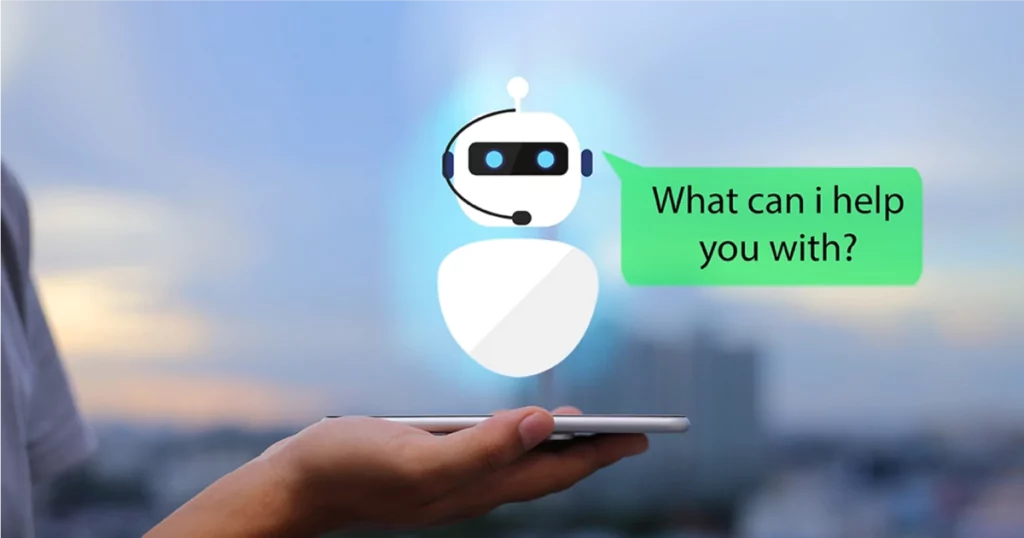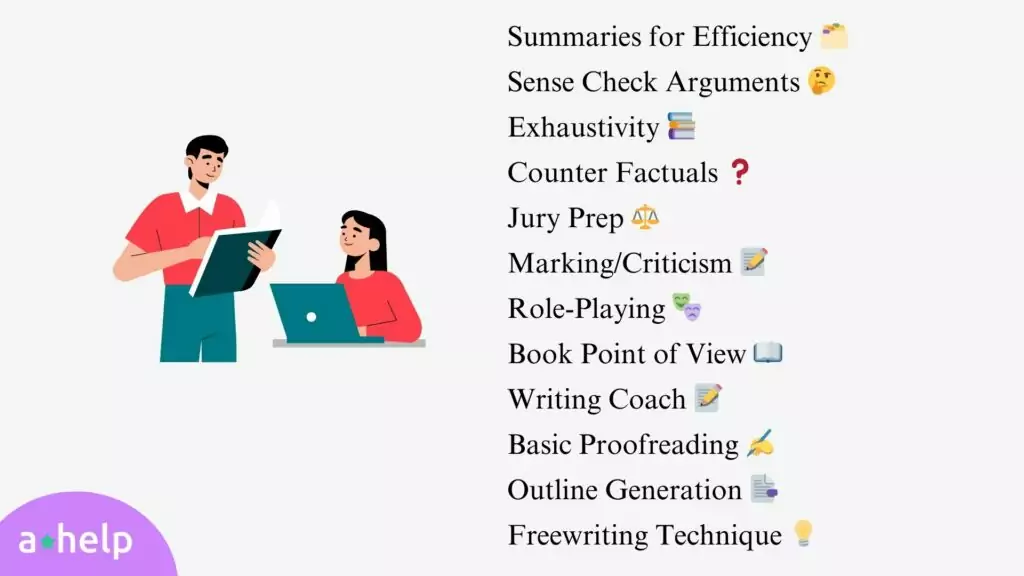The academic community is looking for ways to turn ChatGPT into a friend rather than a foe.

✅ AI Essay Writer ✅ AI Detector ✅ Plagchecker ✅ Paraphraser
✅ Summarizer ✅ Citation Generator

PhD students share their ideas and life hacks they utilize AI-chatbots for their studies.
- Use it for summaries to make reading more efficient and mapping ideas
It could be useful to sense check discrete arguments on various dimensions. - Exhaustivity. Explain the options you came up with and ask if there could be others.
- Counter factual. Share your argument as a prompt and ask for a challenge.
- Jury prep. Explain your argument as a prompt and ask for ten questions.
- Marking. Share your argument as a prompt and ask for criticism.
*Every time you prompt, you will want to give chat GPT an act to follow. I suggest something along the lines of: “You will act as a university professor in [insert field of studies]. I will first share an argument and you will acknowledge receipt. Once you have acknowledge receipt, I will ask you questions on the argument I shared.”
You can also prompt it from the point of view of a well known book on the subject
- Use it as a writing coach to teach you how to write your thesis and research papers.
- Use it for a basic proofreading of academic texts to correct tone and change it to a passive voice (if appropriate), and then provide a score of the original text from 1 to 10.
- Feed chatGPT some prompts and then ask it to generate an outline of the main chapter of the dissertation
- “Freewriting” technique. Just write everything that comes to mind in an unorganized fashion. After you’ve done that, you can just go on ChatGPT and prompt it something like “Improve the text bellow, for publication on a scientific article. Use scientific language”, and paste what you’ve written for the AI Content writer to perfect it.

Weighing the Trade-offs: AI and Its Role in PhD Research
AI’s burgeoning role in the realm of PhD research is becoming increasingly significant, yet it brings along a mixed bag of benefits and challenges, making some people consider turning to online dissertation services. On the one hand, it promises enhanced efficiency and broader horizons for exploration. Conversely, there are legitimate concerns about the reliability of AI-generated results and the potential for diminished skill development among researchers. As academia treads further into this uncharted territory, here’s a table breaking down the key pros and cons of leveraging AI in PhD research.
| Pros | Cons |
|---|---|
| Enhanced Efficiency: AI can automate laborious tasks, freeing up researchers to focus on critical thinking and complex problem-solving. | Reliability Issues: Despite advancements, AI systems can occasionally produce erroneous results, causing setbacks in research. |
| Comprehensive Data Analysis: AI tools can quickly analyze vast amounts of data, revealing patterns and insights that humans might overlook. | Diminished Skill Development: Over-reliance on AI could lead to a decrease in necessary manual research skills, such as meticulous data analysis and problem-solving. |
| Innovative Research Avenues: AI can open up new fields of exploration and inspire novel research approaches. | Ethical Dilemmas: The use of AI in research could lead to ethical issues, such as data privacy and fair use of technology. |
As we stride towards an increasingly digitized future, understanding these trade-offs will be instrumental in harnessing the potential of AI while mitigating its risks in PhD research.
Follow us on Reddit for more insights and updates.






Comments (0)
Welcome to A*Help comments!
We’re all about debate and discussion at A*Help.
We value the diverse opinions of users, so you may find points of view that you don’t agree with. And that’s cool. However, there are certain things we’re not OK with: attempts to manipulate our data in any way, for example, or the posting of discriminative, offensive, hateful, or disparaging material.